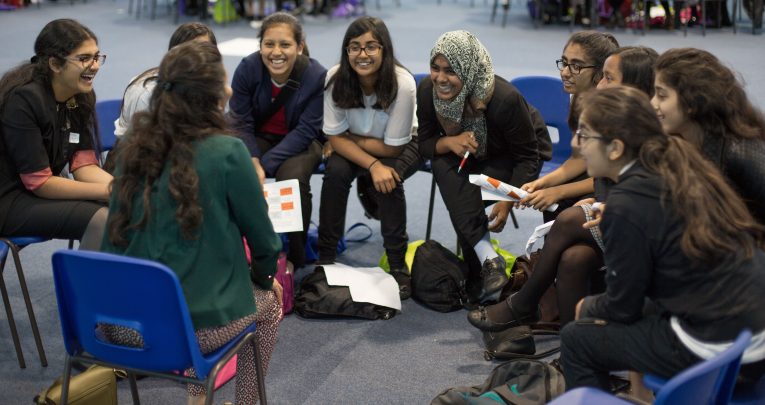Norwich MP Chloe Smith On Why “Aspiration Is Key To Social Mobility”

Chloe Smith explains how she hopes to tackle the lack of awareness among state school pupils of the opportunities available to them once they pass through the school gates for the final time…

- by Chloe Smith

Access to relevant and relatable role models is crucial for a young person’s development. Yet too many young people in Britain do not have access to the networks and role models that prepare them for the day they walk out the school gates for the last time.
This is particularly true for those from poorer backgrounds, although the problem is by no means limited to these. In fact, 39% of state school students don’t know anyone in a job they would like to do. Many believe themselves to be unsuccessful, and 70% think it will be hard for them to get a job when they leave school.
Three pillars
The implications of this are significant, and should be worrying for all of us. Not only is it currently more difficult for children from state schools to access opportunities common to their privately educated counterparts, there’s also the very real possibility that they are oblivious to the sheer range of career opportunities available to them. This ultimately leads to a poverty of aspiration, and becomes a fundamental stumbling block to one’s life chances. It’s also a waste of talent – and an unnecessary one at that.
As the Member of Parliament for Norwich North, I’m leading a campaign to boost social mobility in my city, following a report earlier this month by the Social Mobility Commission, which indicated that a child growing up poor in Norwich has lower life chances than almost anywhere else in England. The campaign builds upon the success of my Norwich for Jobs project, which I set up shortly after I was elected, to halve youth unemployment in Norwich.
Social mobility rests upon three pillars. First, a strong economy to provide the jobs and opportunities which provide fulfilment and reward. Second, young people must be armed with the required skills to make the most of such opportunities. Finally, young people need to be aware of the opportunities available, and what they must do to take full advantage of them.
The Government is already delivering on the first two. Since we came to power in 2010 we’ve seen the creation of over 2 million new private sector jobs, with a plan in place for full employment by 2020. Over a million more children are in good or outstanding schools, and we’ve seen a rise of over 2 million apprenticeships, with a commitment to create a further 3 million this parliament.
The final component – the awareness of what routes are open and how to navigate them – is why I joined Future First. I know from my own childhood, attending a comprehensive school in rural Norfolk, that I simply didn’t have access to certain people and places. I needed a network before being able to use what I’d learnt, and to find out what was out there.
Strong networks are vital
Future First is an education charity that works in 400 state schools and colleges across Britain to develop a thriving and engaged alumni community. The aim is to build students’ confidence and motivate them to work hard in school now, so that they can succeed in their chosen career. The charity works through state school alumni, who register to help motivate today’s students as work experience providers, as well as career and education role models, mentors, fundraisers, governors and donors.
Historically, those attending private schools have been able to benefit from a strong alumni network. We need to work hard to ensure state school students enjoy equal access to the opportunities these alumni networks can offer. This is what social mobility is all about. I am currently in the process of writing to schools leaders in my constituency to highlight this point and encourage them to act upon it.
Research by Future First has found that more than 10 million British adults are willing to support current students at their former state school or college. So far, 150,000 are registered to do so – which means more needs to be done to take advantage of the talent and good will available.
We all agree that every child deserves to succeed in a career of their choice, regardless of their background, and we know that in the modern global job market, strong networks are vital to getting ahead. As a former comprehensive school student myself, I am pleased to join the advisory council of Future First, and look forward to working with them to widen the horizons of young people and boost social mobility both in Norwich and across the country.
Chloe Smith is the Conservative MP for Norwich North; for more information, visit www.chloesmith.org.uk or follow @NorwichChloe











